#supply
Tight Inventory Stands to Hamper July Sales, At Least for Some
Fall holiday discounts aside, the height of summer is typically a good time to head out and buy a car. The weather’s good, new models are rolling into dealers, and markdowns are appearing on older stock taking up precious space. Yet 2020 is anything but a normal year.
As the industry struggles to regain the volume it once enjoyed, threadbare inventories continue to plague automakers, though not everyone’s equal in this exercise.
Mexico to the Rescue As Suppliers Resume Operations
Mexico is attempting to accelerate parts production to ensure North American automakers have enough components on hand to stay operational. The response to the pandemic saw manufacturing stalled worldwide as governments assessed whether or not we’d soon be living through a plague of biblical proportions. While fate decreed a repeat of the Black Death would not be necessary, untold damage resulted in numerous business sectors.
The automotive industry hardly went unscathed. Lockdowns stopped sales in many markets for months and plunged supply chains into turmoil as OEMs shut down to ensure staff were helping to “flatten the curve.” With the public’s interest shifting rapidly away from coronavirus mandates toward demonstrations about police brutality and racial justice, or simply devolving into riots because people are pretty angry about how poorly 2020 is playing out, suppliers and automakers are gradually moving back to more normal production schedules.
This has been easier said than done. But it is being done, and that’s the important thing.
German Automakers Look to South America for Keystone Lithium Supply
With Europe increasingly fixated on regulating vehicular emissions, German automakers are throwing themselves into electrification like ’90s moms did with Beanie Babies. As with those moms, the investment has yet to pay off. Still, that hasn’t encouraged anyone to change course. Every player understood from the outset that transitioning to EVs was bound to be costly and, with increasingly stringent regulations proposed every month, there aren’t many alternatives.
Volkswagen placed its very existence on electrification after Dieselgate, quickly running into problems with battery suppliers. And while VW claims it’s solved the issue for the next few years, it isn’t out of the woods yet. VW and Daimler have reportedly commissioned a study into sustainable lithium mining in Chile, but it’s already receiving pushback from environmental groups concerned about the delicate nature of the region’s Atacama salt flat — where the metal is found in abundance.
Suppliers Have More Lithium Than EV Manufacturers Currently Need
The lithium industry — essential for the production of battery electric vehicles — has run into a problem. It’s currently amassing more of the metal than it needs. Despite automakers like Tesla suggesting there will be upcoming global shortages of metals like copper, nickel, and lithium, the only element that battery suppliers appear to be truly desperate for is cobalt, which is largely the fault of where and how it’s mined ( the Congo, often by children).
Demand for the brittle, bluish metal skyrocketed this year, but not lithium. The latter metal’s global supply currently exceeds demand by about 5 percent, according to data from Canaccord Genuity.
Subaru's Sales Success Comes With a Big Side of Trouble
Subaru’s sales in the United States effectively tripled in the past decade, making it the most important market for the brand by a wide margin. However, the automaker has had to expend quite a bit of energy in its home country of Japan to address recalls and regulatory scandals over the last few years.
While the duality hasn’t caused issues on a global scale, many observers wonder how long its good fortune will last. In America, Subaru is a feel-good brand that uses love as a core marketing concept to improve sales. In Japan, it has become synonymous with overworking employees lacking compensation, regulatory scandals, sudden work stoppages, and recalls. Many believe it’s only a matter of time before Subaru of America will have to contend with Japan’s issues, and evidence exists that problems are already beginning to surface in the West.
Nissan's New Strategy: Build Brand Value, Not Fleet Sales or Incentives
Nissan has long-standing tradition in North America of being a bargain brand. While the automaker fields plenty of affordable options with a base MSRP undercutting that of its rivals, it has also leaned on aggressive incentivizing and heavy fleet sales. This helped Nissan chase volume in the U.S., but CEO Hiroto Saikawa is no longer convinced it’s a winning strategy.
He’s tasking Denis Le Vot, Nissan’s new North American boss, to improve profitability and brand value after the company’s operating profit dipped 50 percent in the region in the last quarter of 2017.
It’s a tall order for Le Vot, who has only had a little over one month to settle into being the regional chairman for the brand, and Saikawa is only giving him another two to figure out how to pull it off. However, he’s hinting at a strategy that eases off dealers, offers fewer market incentives, and ditches a reliance on fleet sales.
GM Opens the Taps After Strike Depletes Chevrolet Equinox Supply
The deal reached with striking autoworkers in Ingersoll, Ontario, last month prevented the supply of hot-selling Chevrolet Equinox crossovers from reaching critical levels, but we now know just how bare the cupboard was.
After a high of 74 days of supply in June, rising sales meant inventory of the newly redesigned compact crossover shrunk to 53 days’ worth at the beginning of September, shortly before the month-long strike began. It plummeted thereafter. With another month of Equinox sales gains under its belt, GM is busy making up for lost production.
The Tucson Is Hyundai's Current U.S. Success Story, but Inventory Problems Are Restricting That Success
Hyundai’s U.S. sales volume is down 13 percent through the first seven months of 2017, a year-over-year drop valued at 60,203 lost sales. Hyundai has fallen so quickly that its corporate partner, Kia, has managed to outsell Hyundai in America in each of the last three months.
But even with Hyundai sales falling nearly five times faster than the industry at large, and even with the two most popular products in the lineup — Elantra and Sonata — causing a 23-percent downturn in Hyundai passenger car sales, there’s good news to be heard out of Hyundai’s (shrinking) corner of the market.
The third-generation Tucson launched two years ago is a verifiable hit. Sales are perpetually rising. July 2017, in fact, was its best month ever.
But there’s bad news. Hyundai can’t get nearly enough Tucsons shipped across the Pacific from the compact crossover’s Ulsan, South Korea, assembly plant.
Dealerships Want to Get Trucked More Often in 2017
The cornerstone of every healthy relationship is frank and frequent communication. Last year, consumers wanted more sport utility vehicles, but automakers still had too many cars rolling off assembly lines. Caught in the crossfire were forlorn dealerships that were incapable of providing the trucks and crossovers that customers cannot seem to get enough of.
At the 2017 National Automobile Dealers Association Conference & Expo, this issue is apparently weighing so heavily on the minds of America’s automotive purveyors that it wouldn’t be surprising if gray matter began leaking out of their ears and onto the expo floor.
Toyota Keeping China Production Plant Closed Longer
Toyota will keep a plant in China closed until at least Aug. 26 as it waits for conditions to improve after an explosion there killed more than 120 people, the Detroit News is reporting.
The Aug. 12 explosion in Tianjin, China injured 67 Toyota employees nearby and damaged 4,700 Toyota and Lexus vehicles. The plant in Tianjin, which produces Crown, Reiz, Corolla and Vios cars, is responsible for roughly half of Toyota’s annual production in China.
“We will only restart operations when we have been able to confirm the safety of our facilities and their surroundings, and when our employees feel that they can once again go to work in a safe environment,” the company said in an email, according to Reuters.
Sales Up In August, SAAR Exceeds 16 Million For First Time Since '07
AutomakerAug. 2013Aug. 2012Pct. chng.8 month
20138 month
2012Pct. chng. BMW division24,52316,83546%188,997164,63615% Mini6,0235,7185%44,32943,6322% Rolls-Royce84796%6726326%BMW Group30,63022,63235%233,998208,90012% Chrysler Division28,67828,0702%212,495216,616–2% Dodge52,85847,34812%413,258344,55620% Dodge/Ram86,44573,41318%653,985537,50222% Fiat4,1904,1501%29,58528,5664% Jeep46,23942,8398%317,921325,945–3% Ram33,58726,06529%240,727192,94625%Chrysler Group165,552148,47212%1,213,9861,108,62910% Maybach–4–100%–32–100% Mercedes-Benz26,15122,68915%203,147182,08712% Smart USA99375332%6,3126,2811%Daimler AG27,14423,44616%209,459188,40011% Ford division212,212188,60813%1,649,8211,453,53614% Lincoln8,1928,1411%53,39957,078–6%Ford Motor Co.220,404196,74912%1,703,2201,510,61413% Buick24,65018,00037%141,880122,58916% Cadillac20,25514,70438%119,58690,93332% Chevrolet187,740169,97810%1,365,5441,270,5828% GMC43,20237,83814%303,254273,36611%General Motors275,847240,52015%1,930,2641,757,47010% Acura17,05115,6469%109,182101,4078% Honda Division149,381115,67529%944,267847,84011%Honda (American)166,432131,32127%1,053,449949,24711% Hyundai division66,10161,0998%493,116479,7893% Kia52,02550,0284%378,380386,809–2%Hyundai Group118,126111,1276%871,496866,5981% Jaguar1,7231,02967%11,1348,54630% Land Rover4,9383,72733%31,97228,03814%Jaguar Land Rover6,6614,75640%43,10636,58418%Maserati32621949%1,8621,7159%Mazda28,10622,23226%198,026185,3467%Mitsubishi5,2814,24924%40,98041,316–1% Infiniti11,88411,1557%71,87977,151–7% Nissan Division108,61487,36024%782,369697,42612%Nissan120,49898,51522%854,248774,57710%Subaru41,06128,29345%281,652217,78029%Suzuki*–1,968–100%5,94617,228–66% Lexus29,79224,23723%171,238150,60414% Scion7,6987,7220%48,95949,747–2% Toyota division194,047156,56124%1,313,5251,199,16310% Toyota/Scion201,745164,28323%1,362,4841,248,9109%Toyota231,537188,52023%1,533,7221,399,51410% Audi14,00511,52722%101,34688,39215% Bentley19815627%1,5651,40511% Lamborghini*46437%3683447% Porsche3,3273,02610%28,45622,27928% VW division40,34241,011–2%282,913286,750–1%Volkswagen57,91855,7634%414,648399,1704%Volvo Cars NA5,5186,319–13%44,00546,649–6%Other**2532463%2,0241,9633%TOTAL1,501,2941,285,34717%10,636,0919,711,70010%
Riding on strong pickup truck and sedan sales, Chrysler Group and Ford Motor Co. both posted 12% overall sales increases from last August. It was Chrysler’s 41st straight year to year monthly increase. A number of manufacturers’ sales were constrained by tight inventory of models in high demand.
Buick Encore Pleasantly Surprised GM, Dealers As Demand Far Higher Than Analysts' Predictions
When the Buick Encore compact crossover was introduced, some questioned if it was the right vehicle for the brand, but apparently GM underestimated initial demand for the Encore.
Dodge Has Its Own Inventory Problems
While the GM inventory woes have been a fixture of TTAC for months, excess inventory isn’t the sole domain of GM’s pickups. Chrysler is having its own issues, with the Dodge Dart suffering from a glut of inventory.
Morgan Threatened By Tree Fungus
Morgan’s wood-framed sports cars are facing an existential threat; a species of fungus that infects ash trees, which are the source of wood used on Morgan’s legendary sports cars.
Nissan: We Have Cars!
With Honda and Toyota struggling to catch up after months of tsunami-related supply interruptions, Nissan’s been passing its major Japanese competitors in sales volume, and they apparently want to keep it that way. As Bertel has reported, Nissan was able to walk away from the tsunami’s devastation practically unharmed, and it’s leveraging its strong supply of vehicles to make hay while the sun shines (or while its competitors are struggling to catch up). This ad, which is a simple reminder to consumers, is only slightly tinged with competitive feist in a scene depicting a frustrated Honda customer. Overall though, there’s not much messaging needed: Nissan has cars, other Japanese competitors don’t. And right now, that could be one of the most effective marketing messages out there. After all, as Autoobserver points out, folks trading in Japanese cars still overwhelmingly buy another Japanese car… so simply having Japanese cars on dealer lots is a huge advantage at the moment.








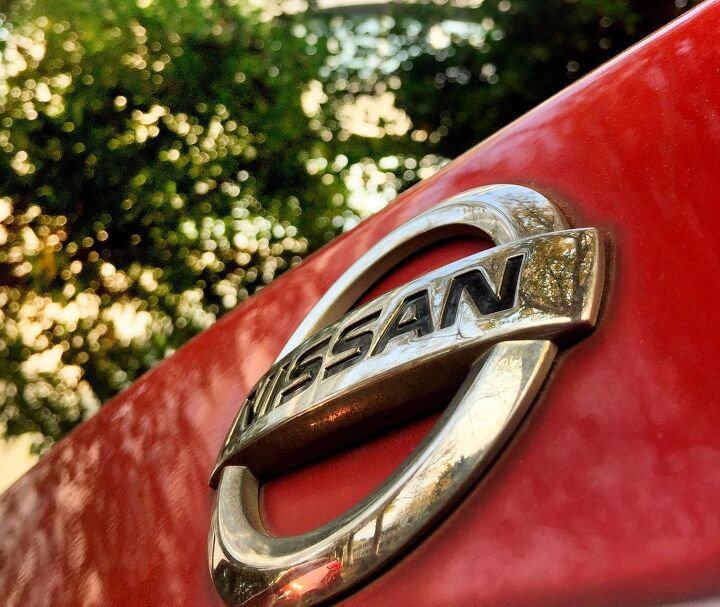
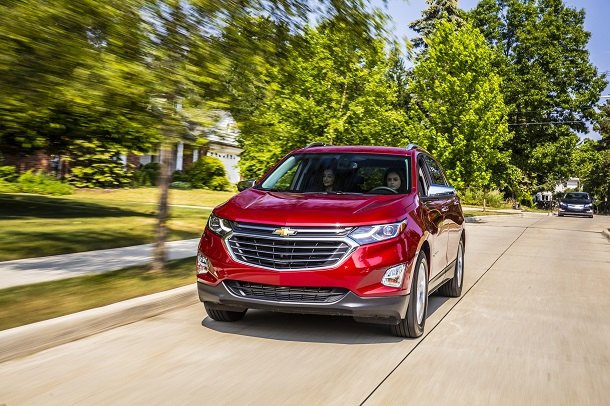
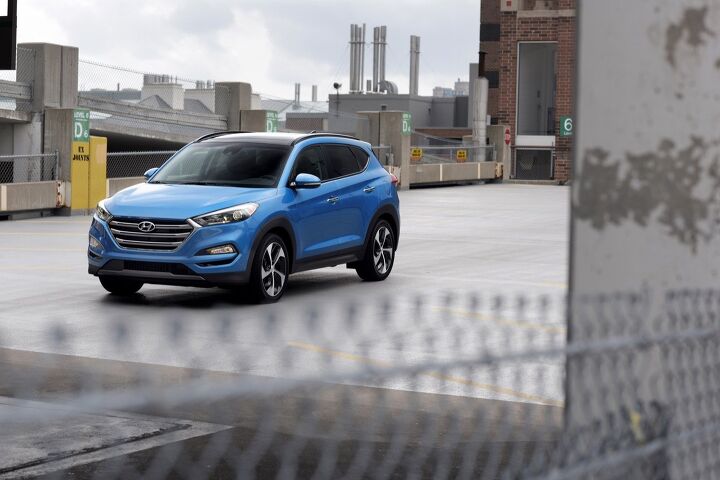

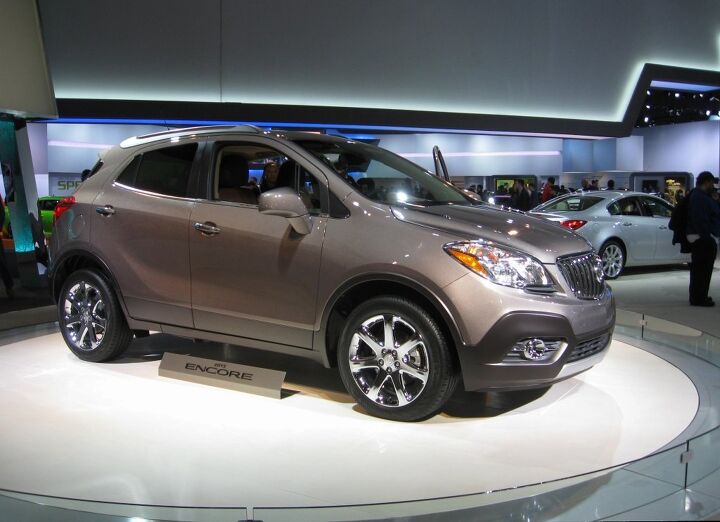
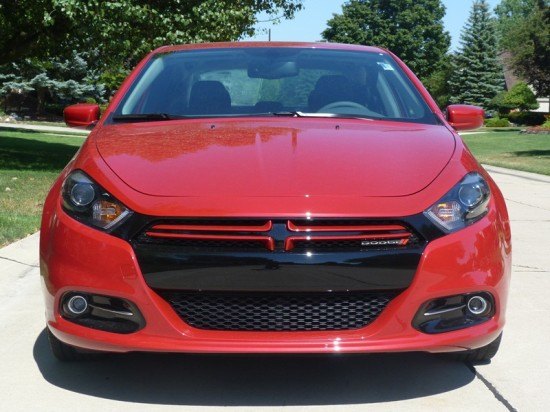
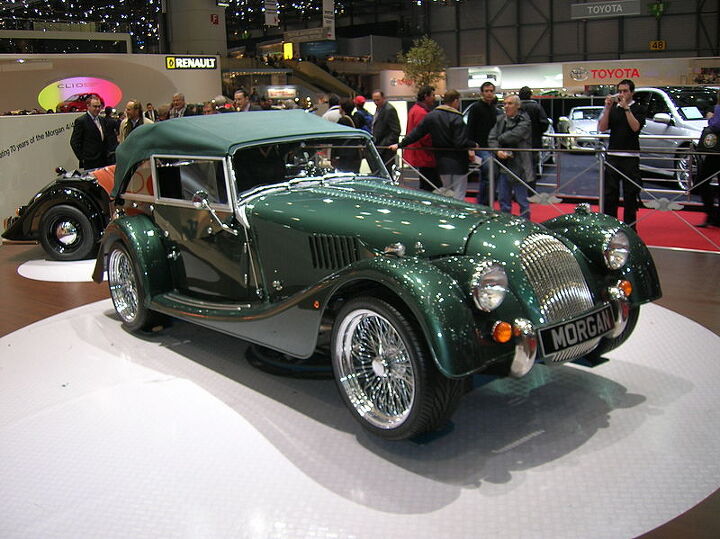












Recent Comments